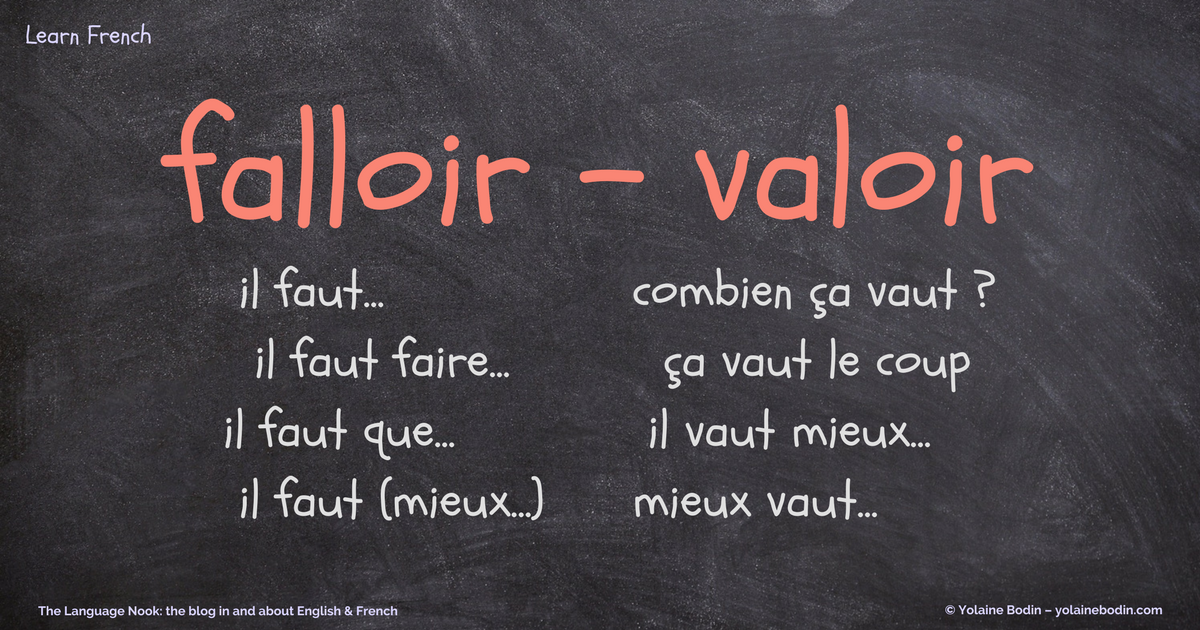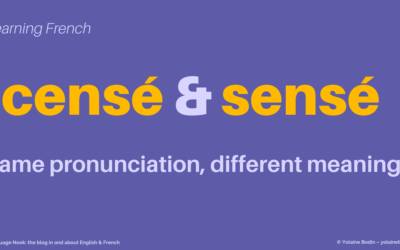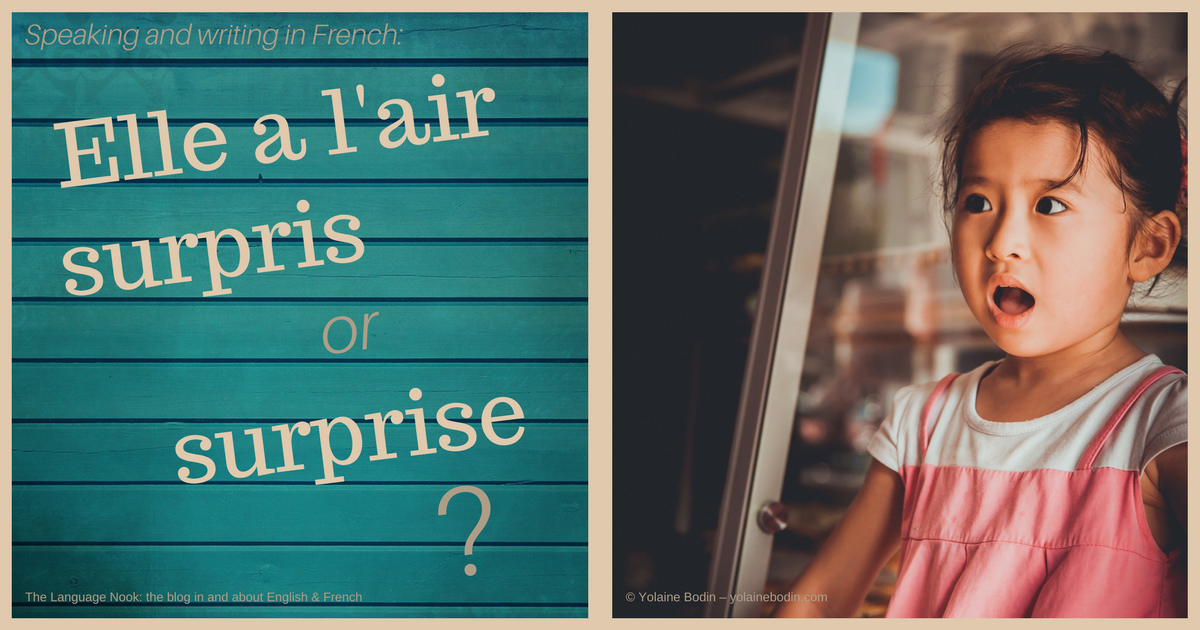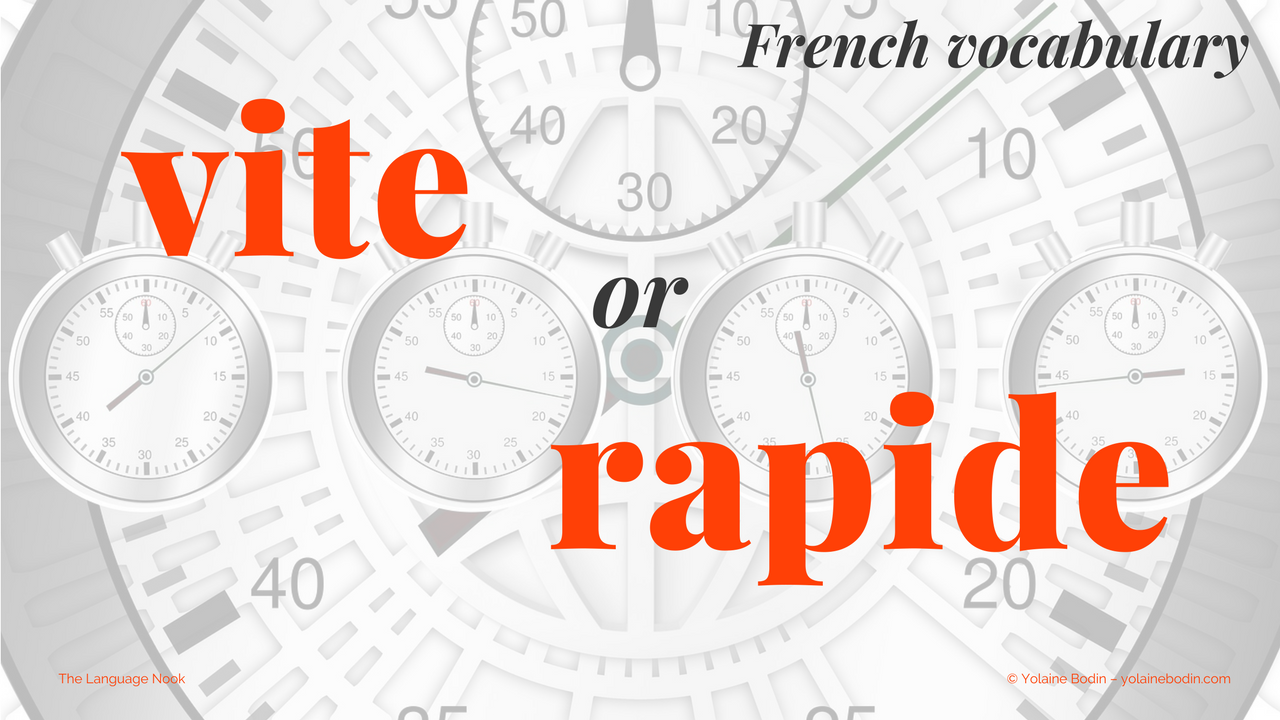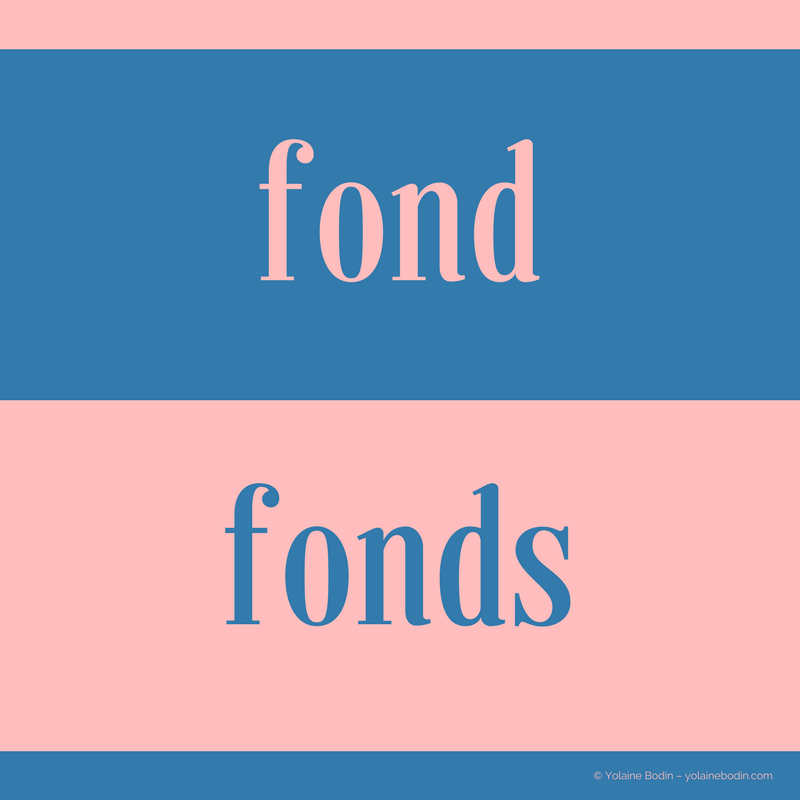Falloir and valoir are two distinct French verbs that are sometimes confused. At this point, I would like to reassure all learners...
French Language Articles
Censé & Sensé: one pronunciation, two meanings
Last week, I was writing a sentence on a whiteboard during a French language class. It was an example that included the word...
“avoir l’air” + adjective
Avoir l'air is a common phrase in French that means to seem, to appear, to look or sound. It is often followed by an adjective....
How to pronounce the word “plus” in French?
The French word plus can have two different meanings: Plus can mean more, as in: Les gens passent plus de temps sur les réseaux...
French vocabulary: vite or rapide?
Here is a question that is often asked in my French classes: when should you say vite and when should you use rapide? You may think...
In French, is it “soi-disant” or “soit-disant”? Getting the spelling and meaning right
Let's say it straight away: soit-disant with a t at the end of the first word simply does not exist! The correct spelling is...
Fond and fonds: what’s the difference?
You may think that fonds is just the plural form of fond and you'd be right, it can be the case! However, fonds, with its final s,...
Commencer and débuter: what’s the difference?
Here we are, at the beginning of the New Year! In France, January is the month where people will wish you a Happy New Year and you...
Chaque or chacun, chacune: what is the difference?
The difference between chaque and chacun, chacune is not necessarily obvious if you are learning French as a foreign language....

